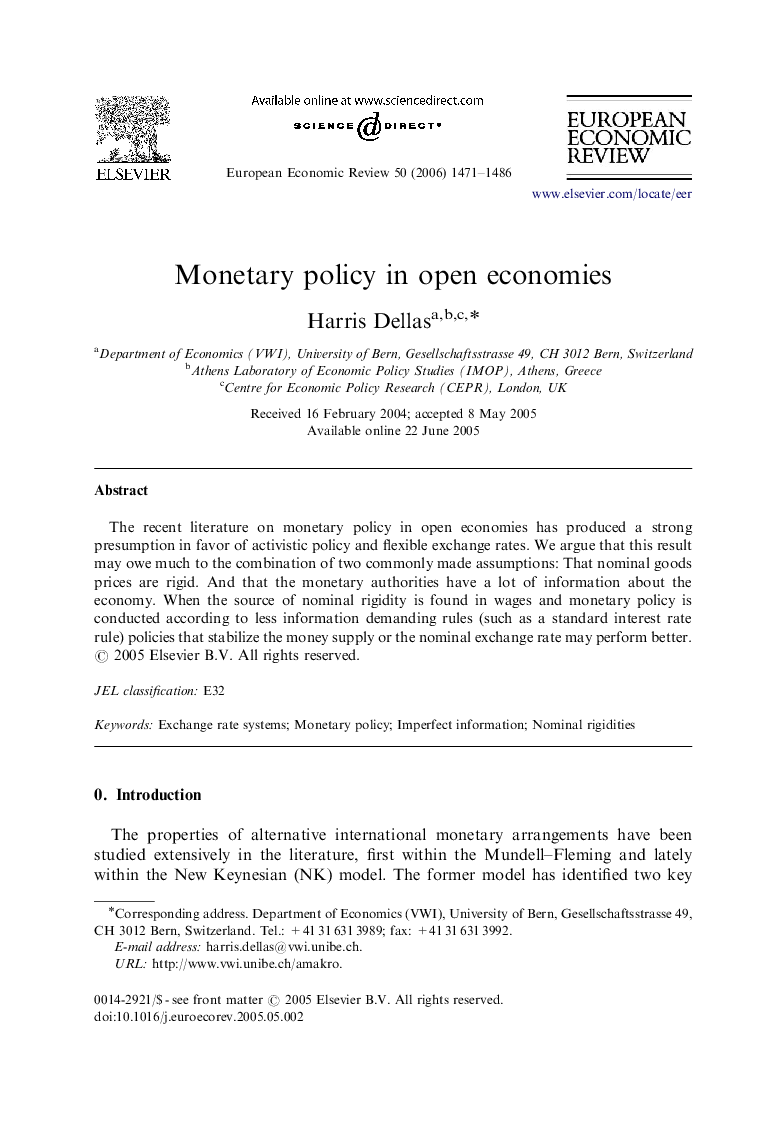| Article ID | Journal | Published Year | Pages | File Type |
|---|---|---|---|---|
| 5067688 | European Economic Review | 2006 | 16 Pages |
Abstract
The recent literature on monetary policy in open economies has produced a strong presumption in favor of activistic policy and flexible exchange rates. We argue that this result may owe much to the combination of two commonly made assumptions: That nominal goods prices are rigid. And that the monetary authorities have a lot of information about the economy. When the source of nominal rigidity is found in wages and monetary policy is conducted according to less information demanding rules (such as a standard interest rate rule) policies that stabilize the money supply or the nominal exchange rate may perform better.
Related Topics
Social Sciences and Humanities
Economics, Econometrics and Finance
Economics and Econometrics
Authors
Harris Dellas,
